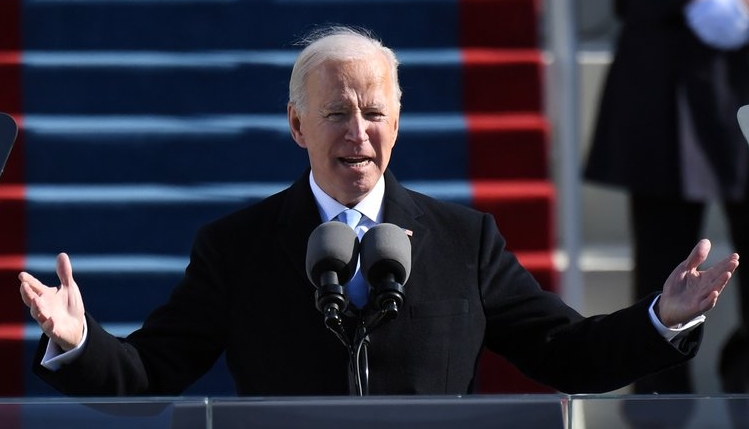WASHINGTON, Jan 22 (AFP) — In his first full day as US president, Joe Biden tackled his country's staggering coronavirus caseload with a spate of new measures, including mask-wearing and quarantining requirements, as EU leaders "strongly discouraged" their constituents from non-essential travel.
Before signing 10 executive orders to strengthen the US fight against Covid, Biden confirmed earlier in the day that he had reversed his predecessor Donald Trump's decision to quit the World Health Organization (WHO).
Under the new measures, travelers to the US, in addition to needing a negative Covid test result before flying, will now need to quarantine upon arrival, Biden said. This toughened existing regulations under Trump.
Biden's other orders included reenergizing a so-far-stumbling vaccination program and expanding requirements to wear masks on public transport.
The longtime politician was a fierce critic of Trump's approach to handling the virus in the US, which with more than 400,000 people dead is the world's worst-hit nation.
The new president is seeking to vaccinate 100 million people in 100 days, increase the use of masks and testing, expand the public health workforce and offer more emergency relief to those struggling with the restrictions.
On Thursday alone the US registered 4,045 new deaths and more than 192,000 new cases over the past 24 hours.
With infection rates spiraling and vaccine campaigns still in their infancy — and with the global death toll now past two million – countries from Lebanon to Sierra Leone are tightening restrictions.
EU Commission chief Ursula von der Leyen and Council president Charles Michel encouraged Europeans to refrain from non-essential travel Thursday while warning that tougher restrictions on movement could come within days if efforts to curb the coronavirus fall short.
After a four-hour summit by video link with the heads of government of the 27-nation bloc, the pair emphasized the EU wanted to avoid a repeat of the height of the region's first wave, in March last year.
"All non-essential travel should be strongly discouraged both within the country and of course across borders," von der Leyen told a media conference.

Gasping for breath
Brazil announced that it would finally receive two million doses on Friday of the British AstraZeneca/Oxford vaccine that were made in India. The jabs, which were originally due to arrive last week, will allow the second worst-hit country in terms of deaths to ramp up its Covid-fighting campaign.
In northwest Brazil hospitals are battling drastic shortages of oxygen and hospital beds, with health workers describing harrowing scenes with dying patients gasping for breath due to the lack of available oxygen.
Elsewhere in Latin America, Colombia surpassed 50,000 Covid-19 deaths Thursday, while Mexico notched two new records with 1,803 deaths and 22,339 new infections over the past 24 hours.
More contagious coronavirus variants have traveled quickly around the globe — including from Brazil — tempering optimism that mass vaccination campaigns would bring a swift end to the worst phase of the pandemic.
Meanwhile the WHO has repeatedly warned that richer countries are hogging the vaccine — and they are paying less for their doses, after negotiating favorable deals with manufacturers.
South Africa, for example, will pay 2.5 times more than most European countries for each Oxford-AstraZeneca shot, the South African health ministry has confirmed.
The US provided a boost to efforts to share out vaccines across the world, however, by announcing it intends to join the Covax initiative, a pool of doses supplied by countries and companies.
Glastonbury cancelled again
In Japan, questions are intensifying about the viability of hosting the Tokyo Olympic Games in six months' time — an event which would require thousands of athletes to fly in from around the world.
Olympic chief Thomas Bach said there was "no reason whatsoever" to believe the games would not go ahead.
But many organizers of large-scale events are already grappling with the reality that the return to pre-pandemic normality may come later than previously hoped.
The Swiss edition of international art fair Art Basel has been postponed from June until September, while in Britain, which is facing record daily death tolls, the storied Glastonbury music festival was axed for another year.
But the same urgency is not being felt everywhere.
The Himalayan kingdom of Bhutan plans to vaccinate its entire population, but not until after March 13 because the period before has been deemed "inauspicious."
ADVERTISEMENT
ADVERTISEMENT


































